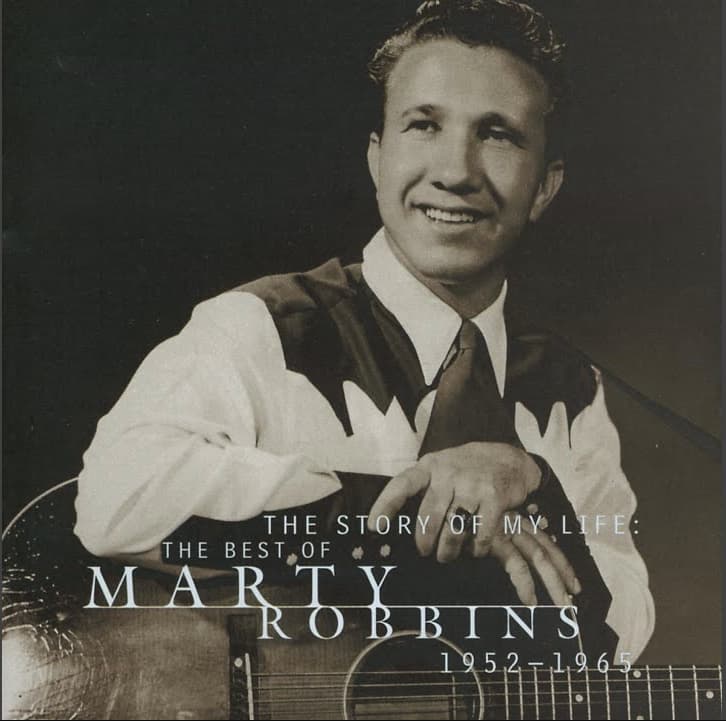
Marty Robbins – I’ll Go On Alone: A Heartfelt Ballad of Solitude and Resilience
In the realm of country music, few voices resonate with the depth and sincerity of Marty Robbins. His song “I’ll Go On Alone” is a testament to the emotional depth that Robbins could convey, weaving stories that touch the soul and linger in the heart. Released in 1952, this poignant ballad marked its presence by reaching number one on the Billboard Country & Western Best Sellers chart, a reflection of its profound impact on listeners of the era.
The early 1950s were a transformative period for country music, with artists like Marty Robbins leading the charge. “I’ll Go On Alone” was a breakthrough for Robbins, establishing him as a formidable talent in the industry. The song was released under the Columbia Records label, which was instrumental in promoting country music to a broader audience at the time. The simplicity yet depth of Robbins’ lyrics and melody struck a chord with many, propelling him into the spotlight.
The narrative behind “I’ll Go On Alone” is one of introspection and personal resolve. It tells the story of a person choosing to walk away from a relationship that no longer brings happiness or fulfillment. There is an underlying theme of strength in solitude, as Robbins croons about the courage it takes to embrace loneliness rather than remain in an unfulfilling partnership. This theme resonated deeply with audiences, particularly those who had experienced similar crossroads in their own lives.
Robbins’ delivery of this song is both haunting and comforting. His voice carries a certain warmth that suggests empathy and understanding, making it relatable for many listeners. The instrumentation is minimalistic yet effective, allowing his voice to take center stage and emphasizing the raw emotion embedded within the lyrics. This approach not only highlighted his vocal prowess but also underscored the lyrical message.
Beyond its commercial success, “I’ll Go On Alone” is cherished for its emotional honesty. In an era where societal norms often dictated personal choices, this song offered a narrative that validated individual feelings and decisions. It encouraged listeners to reflect on their own lives and relationships, providing solace to those who felt isolated in their struggles.
For older audiences revisiting this classic, “I’ll Go On Alone” evokes memories of a bygone era—a time when music served as both an escape and a mirror reflecting personal truths. It reminds us of evenings spent by the radio, listening intently as artists like Marty Robbins spun tales that were both personal and universal. The song’s enduring appeal lies in its ability to capture human vulnerability with grace and dignity.
In retrospect, Marty Robbins’ contribution to country music extends beyond his vocal talent; he was a storyteller who could articulate complex emotions with remarkable clarity. “I’ll Go On Alone” remains a shining example of his ability to connect with listeners on a deeply personal level, ensuring its place in the annals of country music history as a timeless ballad of resilience and self-discovery.